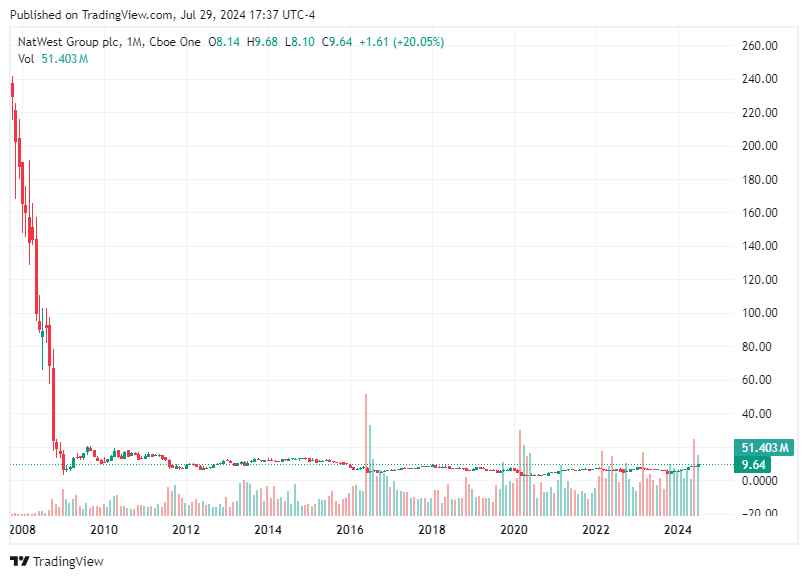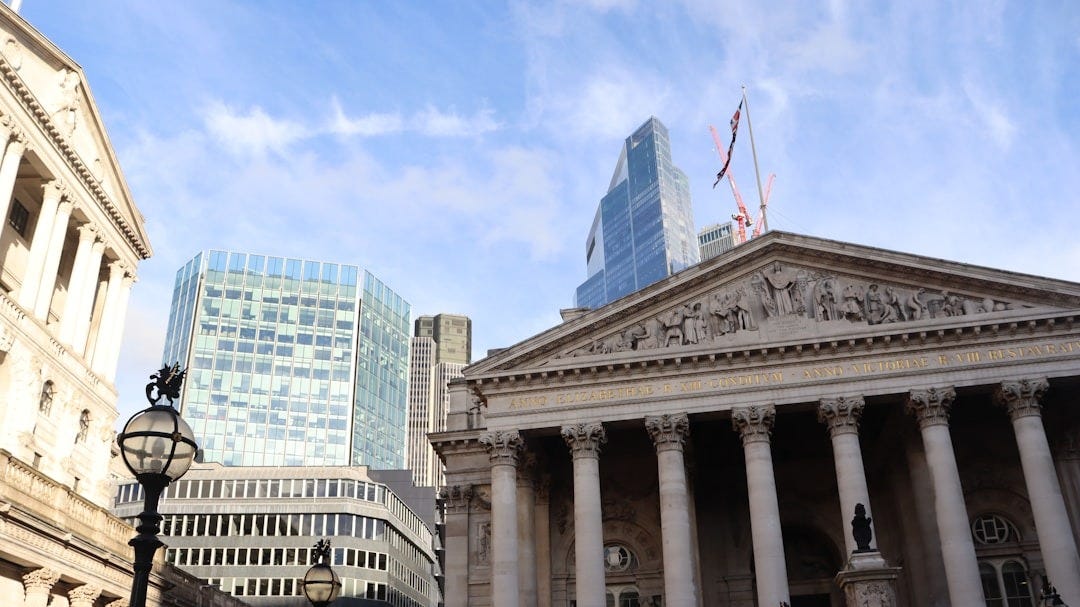United Kingdom To Sell 20% Stake In Major Bank
U.K. Halts Plans to Sell 20% Stake in NatWest: A Detailed Analysis.

Disclaimer: This article provides an analysis based on available information as of the date of publication. It does not constitute financial advice or recommendations.
Real-time information is available daily at https://stockregion.net
The U.K. government has recently announced the cancellation of its planned sale of the remaining 20% stake in NatWest, a bank that was notably bailed out during the financial crisis. This decision is part of a broader strategy to gradually return NatWest to private ownership over the coming years. The new Chancellor, Rachel Reeves, emphasized that this move is intended to avoid what she described as a "bad use of taxpayer money."
Plans for Retail Share Sale
Over the years, the Treasury has been gradually reducing its stake in NatWest, which also owns the prestigious Coutts bank, famous for being the banker of the British royal family. As of recent weeks, the government's shareholding has decreased to below 20%, down from about 38% in December of the previous year. The former Conservative government had initiated plans to sell part of its stake in NatWest to retail investors. This was akin to the iconic 1986 "Tell Sid" campaign designed to promote the sale of British Gas stock to the public following its privatization. The objective was to involve retail investors and democratize share ownership among the wider population.
These plans were put on hold due to unexpected political developments. The surprise announcement of a General Election on July 4 disrupted the timeline, leading to further scrutiny and reconsideration of the proposed retail share sale.
Labour Government’s Decision
Following the election, the new Labour government, under Chancellor Rachel Reeves, re-evaluated the retail share sale's viability. In a statement to the House of Commons, Ms. Reeves outlined the reasons behind the decision to scrap the plan. She highlighted concerns about the financial implications, noting that a retail share sale would likely necessitate discounts, potentially costing taxpayers hundreds of millions of pounds. Given these considerations, the government concluded that proceeding with the sale would not represent value for money. Ms. Reeves firmly stated: “It will not go ahead. It’s a bad use of taxpayer money, and we will not do it.” Instead, the government aims to fully exit its shareholding by 2025-26 through alternative means.
The decision to cancel the planned retail share sale has financial implications for NatWest. The bank disclosed that it had spent £24 million on preparations for the now-scrapped plans. These expenses included costs for advertising and marketing efforts aimed at promoting the share sale. While some of these funds can be repurposed for general advertising, a portion of the expenditure covered legal fees and other non-recoverable expenses.
Despite these costs, NatWest remains supportive of the government’s ultimate objective to return the bank to full private ownership. A NatWest Group spokesperson remarked: “We welcome the Chancellor’s commitment to returning NatWest Group to full private ownership. This is a shared ambition that we believe is in the best interests of both the bank and all our shareholders.”
Future Strategy for NatWest Stake Sale
The current Labour administration appears to be considering a different approach to offloading the remaining government shares in NatWest. Rather than pursuing a retail share sale, the government is expected to focus on selling shares to large institutional investors. This approach aligns with the goal of achieving a complete return of NatWest to private hands by the fiscal year 2025-26.
The decision to halt the retail share sale must be viewed within the broader context of the U.K.'s economic landscape and market conditions. The financial sector continues to face challenges and uncertainties, including market volatility, regulatory changes, and evolving consumer preferences. Against this backdrop, the government’s cautious approach reflects a desire to maximize taxpayer value and ensure a stable transition for NatWest. By opting against a potentially costly retail share sale, the government aims to safeguard public finances and avoid unnecessary budgetary strains.
The U.K. government’s decision to cancel the planned retail sale of its remaining 20% stake in NatWest shows a significant development in the bank’s journey toward full privatization. This decision is driven by a careful consideration of financial implications and a commitment to ensuring value for taxpayers. As the government explores alternative strategies for divesting its stake, the focus remains on achieving a smooth and financially sound transition.
NatWest, having weathered the storm of the financial crisis and subsequent restructuring, stands poised to navigate the next phase of its evolution. Both the government and the bank share a common goal of restoring NatWest to private ownership, a milestone anticipated to be reached by 2025-26.
Disclaimer: The information presented in this article is based on publicly available sources and should not be construed as financial advice or a recommendation to invest in any securities. Readers are encouraged to conduct their own research and consult with financial professionals before making investment decisions.
Real-time information is available daily at https://stockregion.net


